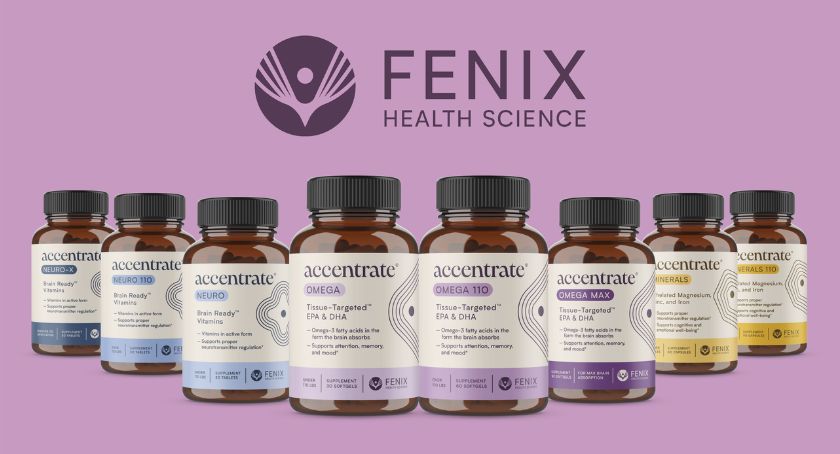Market Updates
FDA Cracks Down on Highly Concentrated Caffeine in Dietary Supplements
Industry aligns with FDA, supporting the measure to protect consumers.
By: Lisa Olivo

The U.S. Food and Drug Administration (FDA) has taken action to better protect consumers from dangerous highly concentrated and pure caffeine dietary supplement products. These products, FDA said, present a significant public health threat because of the high risk that they will be erroneously used at excessive, potentially dangerous doses. Highly concentrated and pure caffeine, often sold in bulk packages, have been linked to at least two deaths in otherwise healthy individuals.
The agency issued a new guidance to clarify that dietary supplements containing pure or highly concentrated caffeine in powder or liquid forms are considered unlawful when sold in bulk quantities directly to consumers. Given the significant public health concern, this guidance is immediately in effect. The FDA is prepared to take steps right away to begin removing illegal products from the market.
“Despite multiple actions against these products in the past, we’ve seen a continued trend of products containing highly concentrated or pure caffeine being marketed directly to consumers as dietary supplements and sold in bulk quantities, with up to thousands of recommended servings per container. We know these products are sometimes being used in potentially dangerous ways. For example, teenagers, for a perceived energy kick, sometimes mix dangerously high amounts of super-concentrated caffeine into workout cocktails. The amounts used can too easily become deceptively high because of the super-concentrated forms and bulk packaging in which the caffeine is being sold,” said Scott Gottlieb, M.D., FDA commissioner. “We’re making clear for industry that these highly concentrated forms of caffeine that are being sold in bulk packages are generally illegal under current law. We’ll act to remove these dangerous bulk products from the market.”
A half cup of a highly concentrated liquid caffeine can contain approximately 2,000 mg of caffeine and just a single teaspoon of a powdered pure caffeine product can contain approximately 3,200 mg of caffeine. This is equivalent to about 20 to 28 cups of coffee, a potentially toxic dose of caffeine. In fact, less than two tablespoons of some formulations of powdered, pure caffeine can be deadly to most adults, while even smaller amounts can be life threatening to children. Risk of overuse and misuse is high when highly concentrated caffeine is sold in bulk quantities, and consumers are expected to measure a very small, precise recommended serving. Regardless of whether the product contains a warning label, such products present a significant and unreasonable risk of illness or injury to the consumer.
The recommended safe serving of highly concentrated or pure caffeine products is often 200 mg of caffeine, which equates to 1/16 of a teaspoon of pure powder or approximately 2.5 teaspoons of a liquid. Yet, despite these small serving sizes, powdered forms of caffeine are sold in large bags and liquid forms are sold online in bottles that can contain a gallon or more. Often, consumers do not have the right tools to correctly measure such a small amount. Even if they do, simple and common errors, such as packing the powder too tightly or using a “heaping scoop” instead of a “level scoop,” can increase the amount of caffeine in a single dose, with harmful results. Consumers could also make similar errors with highly concentrated liquid caffeine products. For comparison, a can of caffeinated soda contains about 35 mg of caffeine, which would equate to less than half a teaspoon of highly concentrated liquid caffeine.
Additionally, these products often closely resemble safe household items, potentially leading to accidental and dangerous ingestions. Highly concentrated caffeine in a clear liquid form could be easily confused with commonly available liquids, such as water or distilled vinegar, and pure powdered caffeine could be easily confused with flour or powdered sugar. The consequences of a consumer mistakenly confusing one of these products could be toxic or even lethal.
When formulated and marketed appropriately, caffeine can be an ingredient in a dietary supplement. For example, the guidance describes how dietary supplements containing caffeine in certain forms are less likely to present the same safety risks, including those sold in premeasured packets or containers, or in solid dosage forms such as tablets or capsules, or when sold in formulations that are not highly concentrated.
Moreover, this guidance does not affect other types of products that might also contain caffeine, such as prescription or over-the-counter drugs or conventional foods, like traditionally caffeinated beverages.
In 2015 and 2016, the FDA issued warning letters to seven distributors of pure powdered caffeine, with several of the letters citing that the products were dangerous and presented a significant or unreasonable risk of illness or injury to consumers. Since that time, the FDA has continued to see a proliferation of similar products being sold online. The FDA intends to carefully review any dietary supplement products that contain potentially dangerous amounts of caffeine in any form, and the agency will continue to take action when products put consumers at risk.
Industry Support
In response to the new guidance, the Council for Responsible Nutrition’s (CRN) president and CEO, Steve Mister said, “Extremely concentrated or pure caffeine has no place in the consumer marketplace, and CRN fully supports FDA’s commitment to taking immediate steps to remove products from the marketplace that present public health concerns.”
CRN added that the announcement from FDA puts all dietary supplement stakeholders, including online retailers, “on notice that highly concentrated caffeine sold in bulk to consumers is dangerous and illegal.”
As consumer safety is a top priority for CRN, in 2013 the organization established recommended guidelines for caffeine-containing dietary supplements. “The guidelines include recommendations on disclosure of total caffeine content; label advisories for conditions of use; serving size and daily intake recommendations; and restraints against marketing caffeine in combination with alcohol,” said Mr. Mister. In 2015, CRN updated those guidelines to include restraints against the sale and marketing of pure powdered caffeine directly to consumers.
American Herbal Products Association (AHPA) President Michael McGuffin also expressed support for FDA’s efforts to prevent consumers from purchasing pure caffeine in bulk.
“Consumer safety is a top concern for AHPA members and that’s why the association adopted a policy in 2015 that prohibits the sale of pure caffeine to consumers,” said Mr. McGuffin. “The regulated supplement industry appreciates the FDA’s recent action on this issue which AHPA believes is very much in the public interest.”
AHPA members have also adopted a comprehensive labeling policy to help the industry promote the responsible use of products that contain caffeine.
The guidance outlines ways to formulate and market dietary supplements containing caffeine in a manner that make it unlikely for FDA to consider the product adulterated, including:
- Dietary supplements sold in solid dosage forms, such as tablets or capsules that do not provide an excessive amount of caffeine per item eliminate the need for a consumer to accurately measure the appropriate serving.
- Dietary supplements containing powdered or liquid caffeine (either diluted or undiluted) that are sold in premeasured packets or containers, with each premeasured unit containing an amount of caffeine that is not excessive eliminate the need for a consumer to measure the appropriate amount.
- Bulk powdered or liquid caffeine dietary supplement products that have been significantly diluted to low enough concentrations of caffeine, such that a reasonably foreseeable measurement error, misreading of the directions, or misunderstanding about the nature of the product would not normally be expected to lead to toxic or life-threatening symptoms.




















